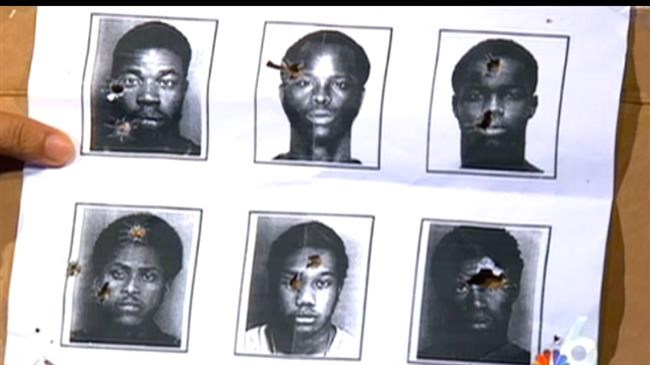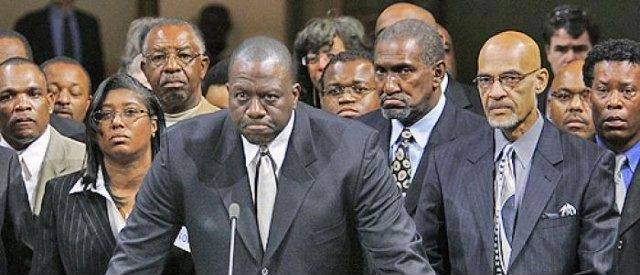“Taken” aback: The Trial of Liam Neeson
Written by: J. Stokes – February 14, 2019

Court is in session!
Liam Neeson became Twitter’s top trending topic when, on February 4th, it was revealed that he once sought racially motivated violence. This story came from an interview with Britain’s The Independent, during a talk about the actor’s latest film, Cold Pursuit. Neeson recounted an incident from some time ago where he returned home to Northern Ireland after being abroad. It was then that he found out someone close to him was raped. The actor said the following:
“I asked, did she know who it was? No. What color were they? She said it was a Black person. I went up and down areas with a cosh [a thick, heavy stick or bar] hoping I’d be approached by somebody. I’m ashamed to say that. And I did it for maybe a week, hoping some Black bastard would come out of a pub and have a go at me about something, you know? So that I could…kill him.”
These comments did not go over well with many once the story broke. Several individuals on Twitter expressed their disappointment in the actor, with some calling for him to be “cancelled.” One example comes from Senior Entertainment Reporter for Metro UK Alicia Adejobi, who wrote, “Never thought I’d have to cancel Liam Neeson but… here goes. How he ever thought he could say this without consequences is mind-boggling.”
To be fair, Neeson did express remorse for his actions. In that same interview he stated, “It was horrible, horrible when I think back, that I did that. And I’ve never admitted that.” The actor furthermore claimed he learned a lesson from the incident, saying, “I understand that need for revenge. But it just leads to more revenge and more killing, and more killing.”
Judge
There are several aspects of Neeson’s interview to consider. First, why only ask about the perpetrator’s race when looking for descriptive features? The actor failed to further explain his line of questioning. In response to this, author and sociologist Dr. DaShanne Stokes tweeted, “Asking the perp’s race shows pre-existing bias.”
Unfortunately, Black men are at the receiving end of many negative stereotypes worldwide. Regarding rape specifically, Patton and Snyder-Yuly (2007) purported that one of the greatest myths is that it is largely “a crime committed by Black men against White women” (p. 862). This racist myth is rooted in a history of fictitious stories, American slavery, and propaganda. Hund and Mills (2018) stated that a 1570 narrative by Spanish writer Antonio de Torquemada, telling the story of a Portuguese woman being exiled to Africa and raped by an ape, helped spearhead comparisons between Africans — thereby members of the African diaspora — and simians. Patton and Snyder-Yuly (2007) furthermore asserted that Black sexuality has been stereotyped as uncontrollable, bestial, and even criminal.
This general belief could be what made Neeson inquire about the perpetrator’s race. He might have wanted to confirm his initial suspicions.

A second point to consider is the actor’s response after learning about his loved one’s sexual assault. Neeson wanted to kill any Black man as opposed to the actual rapist. In a way, he was holding others accountable for the actions of one. Oftentimes, Black people are made to represent their entire race. Heather M. Edwards, in her article “7 White Privileges I Didn’t Realize I Was Enjoying,” made note of this, stating, “if a Black guy robs a convenience store too many white people have assumed that it is proof of the inherent criminality of All Black People.” Given this understanding, one could infer that Neeson saw all Black men as rapists despite having no evidence of such crimes.
Without question Neeson’s thoughts about attacking and potentially killing random Black men is problematic, especially given the history of false rape accusations made against this demographic.
One could point to the Scottsboro Boys, nine Black teenagers who in 1931 were falsely accused of raping two White women. They spent years battling the courts and endured harsh conditions in Alabama’s prison system. Another example comes from 2018, where a White woman named Nikki Yovino falsely accused two Black football players from Sacred Heart University of raping her. After a full investigation, in which the players were asked to leave school and lost their scholarships, Yovino later admitted that her story was untrue. Just last month, R&B singer Chris Brown was falsely accused of raping a woman in Paris, France. Brown, a US citizen, was detained in Paris. He has since responded by filing a complaint following his release.
These cases against Black men are not being used to negate the past rape allegation of Neeson’s loved one, but rather show the effects of generalizations and stereotyping.
Jury
In response to the actor’s critics, some highlighted his remorsefulness and bravery for sharing such a troubling story. Pakistani-born Canadian author Ali A. Rizvi wrote:
“Many of us who are black or brown have been on the receiving end of this kind of antipathy. It’s not uncommon. Kudos to Liam Neeson for so honestly admitting (in the Twitter age!) to a shameful impulse he had long ago which he learned from. It couldn’t have been easy. #StillAFan”
Moreover, a headline from an article in CNN proclaimed “Liam Neeson expresses regret for once contemplating racist revenge.”

While the examples seen are fair assessments of Neeson’s interview remarks, there are still some points to consider. First, Rizvi, though part of a stigmatized ethnic group, does not fall within the Black demographic. Therefore, he might not experience the same hurt as a member of the Black community.Twitter user @bre_bre_cheese made note of this asserting, “You don’t get the right to ‘forgive’ him when your community wasn’t threatened.”
Regarding the headline from CNN, one must consider Neeson’s takeaway regarding the incident. The actor specifically said, “I understand that need for revenge. But it just leads to more revenge and more killing, and more killing.” This revelation focuses on retribution and murder rather than racial bias and stereotyping. The actor might have been better off stating that racially charged violence based on the actions of one person is wrong and dangerous.
Execution
Neeson has since been interviewed on Good Morning America and tried to clarify his comments from The Independent. While on the show he asserted, “I’m not racist. This was nearly 40 years ago.” Neeson furthermore added that he asked for other identifying features of the perpetrator other than just race. Still, it is fair to say that his initial interview will leave a mark on numerous Black individuals and many in his fan base. Given this, one must ask if there is a path to redemption for the actor? Strategies might include donating acting proceeds to Black organizations. Neeson might also consider being hands on and working with Black groups in parts of the world to reduce racial disparities.

Lastly, though Neeson reflected on a time that occurred “nearly 40 years ago” Black individuals on a global scale still face harsh discrimination and murder due to people with the same ideologies he expressed.Therefore, it is understandable that this group — and their allies — would have such a strong reaction to his story. Ultimately, one can argue that Neeson should have shared his story to spark a dialogue about race relations and how to overcome implicit biases.
As comedian, writer, and actress Joy Behar put it, “I believe in constructive conversations about race at all times. I just don’t think people should spew.”
**What did you think of this week’s write-up? Let us know your thoughts in the comment section below!
References
Hund, W. D., & Mills, C. W. (2018, January 15). Comparing black people to monkeys has a long, dark simian history. Retrieved February 5, 2019, from https://www.huffingtonpost.co.za/2018/01/15/comparing-black-people-to-monkeys-has-a-long-dark-simian-history_a_23333383/
Patton, T. O., & Snyder-Yuly, J. (2007). Any four black men will do: Rape, race, and the ultimate scapegoat. Journal of Black Studies, 37(6), 859–895.
